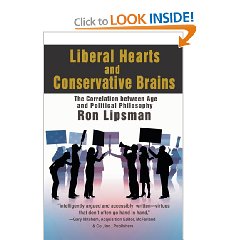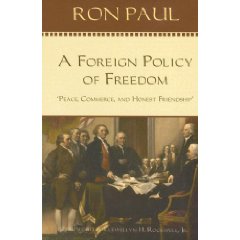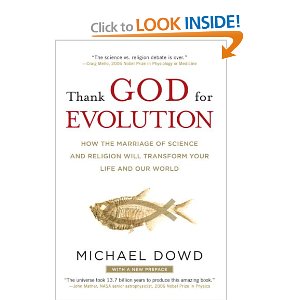 Solid, Insightful, Relevant, Useful, Pointed, a Pleasure to Read,March 29, 2008
Solid, Insightful, Relevant, Useful, Pointed, a Pleasure to Read,March 29, 2008
Ronald Dworkin
I bought this book on the basis of the title, with no idea of the author's deep history of accomplishments. This is a lovely book, largely an essay. The author opens by telling us he is concerned about the lack of political argument (dialog) in the USA, including substantive coherent dialog about core issues such as:
1. Nature and role of human rights in defining legitimate behavior by both individuals and governments
2. Role of religion in politics and governance
3. Distribution of community's economic wealth
I bring back from page 125 the following superb quote: “But our national politics fails the standard of even a decent junior high school debate.”
And on page 127: “So Americans are horribly misinformed and ignorant about the most important issues.” This is true. What he does not tell us, which we learn in the following book, is that all of our politicians and their so-called “advisors” are equally ignorant. See: Security Studies for the 21st Century
I was in error when I first thought the author was a conservative, forming that impression from the index and the endnotes, where I usually start a book. He is rather a very educated and philosophically well-grounded person of liberal to centrist perspective, and I found this book to be sensible, easy to read, and compelling.
The book could not be more timely for me (published in 2006) as I wathc Senators Clinton and Obama behave like children and avoid substantive policy backed up by a balanced budget they are both incapable of producing, while Senator McCain gets a “bye” and is not asked any tough questions at all (for 52 tough questions and transpartisan “starter” answers, visit the 501c3 Public Charity, Earth Intelligence Network).
The author, with a deep legal understanding and much work previous to this book, probes how character and forms of governance and politics shape the decisions we make.
He labels partisanship destructive, and puts forward his view that despite the superficial divide between “red” and “blue” he believes we can still come together at a deeper level of understanding such that we can overcome partisanship. I urge one and all to visit Reuniting America and especially their page on transpartisanship, it is consistent with what this author presents to all of us for consideration.
He specifically labels campaign rhetoric from 2004 to be shallow, as shallow as any since the last substantive debates in America, between Lincoln and Douglas (he says, I agree although Kennedy and Nixon I thought did well).
The author identifies his agenda in two parts: to explore how we might find shared principals, and to explore how such might lead to good outcomes for the Nation as a whole.
He puts forward three propositions early on:
1. Equal rights for all, meaning that both US citizens and foreigners (e.g. the ones in Guantanamo) should be treated equally, i.e. human rights should prevail here and both groups have equal right to dignity and justice and equality.
2. No television advertisements for political campaigns in the months leading up to an election.
3. Poor merit special protection and consideration as part of establishing the legitimacy of government and the equality of all (e.g. the poor cannot insure themselves the way the wealthy can). At a stratgeic level, there is no finer book than Max Manwaring (ed)'s The Search for Security: A U.S. Grand Strategy for the Twenty-First Century.
The author lists and discusses two dimensions of human dignity:
1. Human life as having special intrinsic value
2. Each person bears responsibility for themselves
He suggests that in discussion political versus human rights, the latter is the more stringent test, and I agree, as one of those who signed the letter to Senator McCain opposing torture by CIA or the US military. The author clearly states that to treat the “enemy combatants” as we have is to declare them to be less than human.
He places great emphasis on the importance of dignity for all, and I am reminded of the superb book, All Rise: Somebodies, Nobodies, and the Politics of Dignity (BK Currents)
He suggests that the religious clash in America is not about the more fundamental issue of faith and the value of faith, but rather about the role of religion in national life. The author leans toward the belief that we should (as the founding fathers intended, see Founding Faith: Providence, Politics, and the Birth of Religious Freedom in America, be tolerant with selected unitarian references to God (e.g. in the Pledge of Allegiance, in coin) but not–as most extreme right fundamentalists would have, as a “Christian Nation.” As the author of Founding Faith makes clear, the latter is simply not an option.
The author states that we need to have a faith-based dialog between left and right, and I agree, while also noting we need to do this at an international level, where we are long overdue for a global Truth and Reconciliation Commission on what damages America has wrought “in our name” but against our public moral faith. A couple books worth close scrutiny (or at least read my reviews:
God's Politics LP
Faith-Based Diplomacy: Trumping Realpolitik
The author addresses liberty as not just being freedom, and defines it rirectly as the right to do what you want with the resources that are rightfully yours. That last bit is of course subject to long discourse: is Exxon entitled to $40 billion in profit while externalizing $12 in costs to the planet and future generations? Is Wal-Mart entitled to profits and the abuse of most of its employees while destroying small busiunesses for 150 miles around each Wal-Mart, and destroying the South Pacific off the coast of Chile so as to produce cheap fish while killing all life on the ocean bottom there? See my many lists.
The author specifically confronts and rejects the “culture of life” as being a compulsory sort of paternalistic and judgemental intrusion into our liberty. He defends abortion by pointing out that the fetus, while undeniably alive (so is a cancer) has no mind and hence no intersts. I for one place higher status on the mother's desires and needs in the first tri-mester.
He strongly supports gay “marriage” as a loving contract, and demands scientific proof before being willing to consider “intelligent design” (in passing I note that Germany has declared Scientology to be a cult, and outlawed it. I am reminded of the excellent book, Forbidden Knowledge: From Prometheus to Pornography.
He provides an excellent discussion of how legitimacy in political authority stems from shared morality and balanced equality, and on this basis believes that the poor merit special consideration. He does not address how corporations should be deprived of their abuse of the personality privilege.
He tells us that a big reason the conservatives want to cut taxes is their desire to end the “welfare” state. From where I sit, we do need a smaller government but until labor unions are restored, and the Secretary of the Treasury starts to do his job instead of fronting for Wall Street against the public interest, I believe the author is on target and merits our respectful attention.
I completely agree with him on the indefensability of the gap between rich and poor in America, and elsewhere.
The book draws to a close with two contrasting views of what comprises a democracy, the one being majoritarian, the other in which We the People are full partners and the majority cannot impose its views on the minority, whose rights and views must be treated with respect and protectied. Here I point the reader to the formidably scathing Running On Empty: How The Democratic and Republican Parties Are Bankrupting Our Future and What Americans Can Do About It. BOTH parties are nothing more than two branches of a single organized-crime family, and both should be forced to pass the Electoral Reform Act before November 2008, or every incumbent dismissed and the two parties vanquished by Independents, Greens, Reforms, Libertarians, moderate Fiscal Conservatives, and conservative Southern Democrats.
He closes the book calling for equality for all, and dramatically increased self-government. He says we MUST do better in Education (I am reminded of Thomas Jefferson, “A Nation's best defense is an educated citizenry”), and calls for public election channels, the regulation of private networking (to which I would add Open Spectrum), the Right of Comment (e.g. on Jack Cafferty saying “Ralph Nader should be batted away like a fly”), and on term-limits for Supreme Court justices, he suggests 10 years.
As I contemplate the existence of 27 secessionist movements in the United States; the collapse of the Federal government whose ineptness is virtually complete, the criminality in the White House, hijacked by Dick Cheney, I have to come down strongly in favor of a public demand for a Constitutional Convention in 2009, making that the litmus test for any candidate. NONE of the three is qualified to govern in their present condition. We may yet need a third party candidate with a transpartisan cabinet, a balanced budget, a commitment to both Electoral Reform and a Consttutional Convention (see also Our Undemocratic Constitution: Where the Constitution Goes Wrong (And How We the People Can Correct It))
My review does not do this author justice. His book is elegant, thoughtful, philosophical, balanced, not at all confrontational, and the best thing I can say of this book is that I had to read it and think about it. This is a first-class piece of work, one the Founding Fathers would have found worthy.
See also The Future of Ideas: The Fate of the Commons in a Connected World and my many lists on the Earth Threats (10) Earth Policies (12) and Earth Challengers (8).








